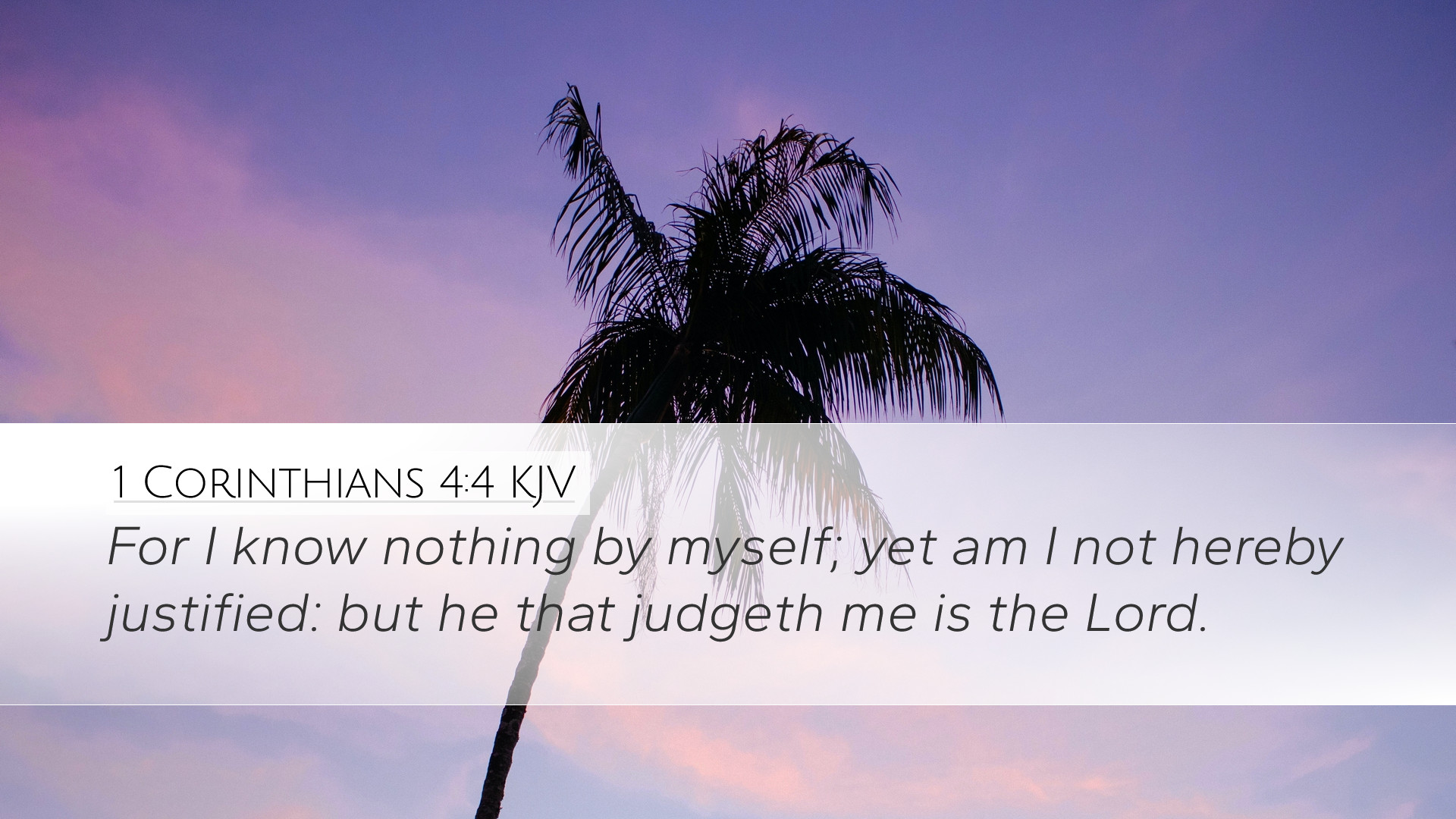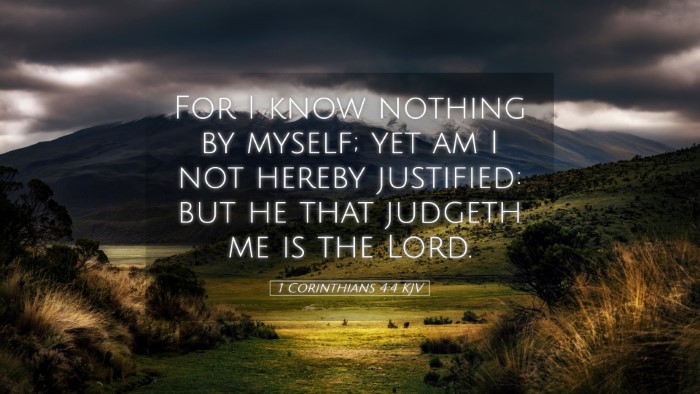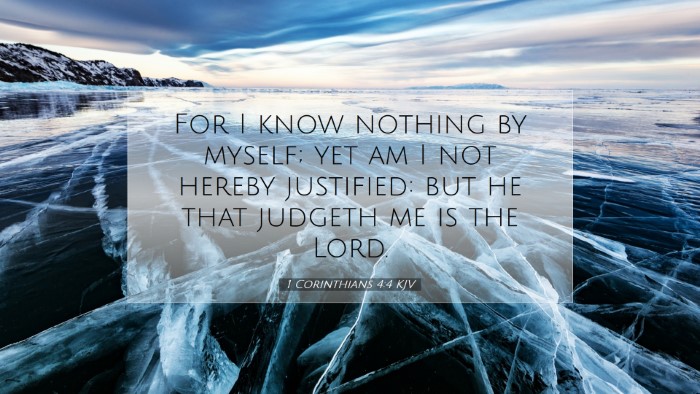Commentary on 1 Corinthians 4:4
Verse Reference: 1 Corinthians 4:4 - "For I know nothing by myself; yet am I not hereby justified: but he that judgeth me is the Lord."
Introduction
The Apostle Paul, in his first letter to the Corinthians, addresses issues of judgment, self-perception, and the ultimate authority of God in evaluating the worthiness of individuals. This commentary will synthesize insights from respected public domain works to provide a rich understanding of this verse.
Contextual Background
The context of 1 Corinthians 4 involves Paul defending his apostolic authority and ministry against the evaluative criticism he faced from some in the Corinthian church. The pervasive culture of judgment and moral standards in Corinth influenced how believers viewed leaders and fellow Christians. Paul seeks to redirect their focus from human judgment to divine assessment.
Exegesis of the Verse
Phrase Analysis
"For I know nothing by myself;"
Paul acknowledges a state of self-awareness and humility. Matthew Henry points out that this phrase reflects an attitude recognizing that self-judgment can be misleading, emphasizing that true knowledge of oneself comes from God alone.
"yet am I not hereby justified:"
This statement reveals that even a clear conscience does not equate to righteousness before God. Albert Barnes explains that justification before God is based on the work of Christ and is not determined by an individual's subjective understanding or feelings of worthiness. Paul reminds his readers that reliance on self-evaluation is insufficient.
"but he that judgeth me is the Lord."
Paul’s ultimate confidence lies in the judgment of God, not human opinions. This reflects Adam Clarke's insights regarding the divine authority to judge righteous and unrighteous acts. Clarke emphasizes that all believers are accountable to God, who sees beyond external appearances and knows the heart and motives of every person.
Theological Implications
- Self-Examination vs. Divine Judgment: This verse underscores the necessity of self-examination, yet importantly points out that such examinations must be understood within the context of divine oversight. Paul’s assertion conveys that while self-reflection is valuable, it is God's judgment that ultimately matters.
- Humility Before God: The acknowledgment of human limitations in understanding leads to a posture of humility. Believers are called to live lives marked by dependence on God’s grace and an acknowledgment of His sovereignty in all aspects of life.
- Hope in Christ’s Work: The verse points to the hope found in Christ; our justification is not based on what we know or perceive about ourselves, but on the righteousness of Christ. This foundational truth liberates believers from the tyranny of performance-based spirituality.
Practical Applications
For pastors, students, and scholars, this verse presents several practical implications:
- Ministry Evaluation: Leaders should remember that criticism may come, but it is ultimately God who evaluates their ministry. This perspective provides a sense of peace amid scrutiny.
- Encouragement in Weakness: Believers are encouraged to lean into their weaknesses rather than hide them. Recognizing that God judges the heart allows individuals to be transparent in their struggles.
- Public Accountability: There is a balance between being accountable to the church community while also recognizing God’s ultimate authority. This encourages a culture of grace where growth can occur through honest community without fear of human judgment.
Conclusion
1 Corinthians 4:4 serves as a profound reminder of our dependence on God for true judgment and understanding. By integrating insights from Matthew Henry, Albert Barnes, and Adam Clarke, we grasp a fuller picture of Pauline theology concerning self-awareness, justification, and divine authority. As we engage with this text, may we find our identities rooted not in the ephemeral assessments of others, but in the eternal evaluation of the Lord.


